Table of Contents
Come join us now, and enjoy playing your beloved music and browse through great scores of every level and styles!
Can’t find the songbook you’re looking for? Please, email us at: sheetmusiclibrarypdf@gmail.com We’d like to help you!
Sorabji: In the Hothouse (from Two Piano Pieces) sheet music, Noten, partitura, spartiti 楽譜

Best Sheet Music download from our Library.
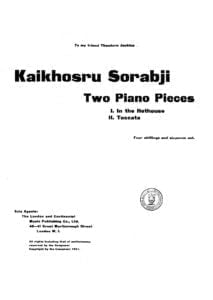
Please, subscribe to our Library.
If you are already a subscriber, please, check our NEW SCORES’ page every month for new sheet music. THANK YOU!
Browse in the Library:
Or browse in the categories menus & download the Library Catalog PDF:
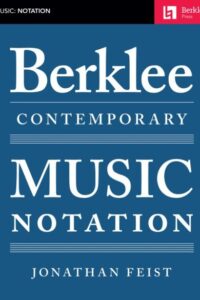
Who was Sorabji?
Kaikhosru Shapurji Sorabji: The Hermit of Modernist Maximalism
In the often-crowded pantheon of 20th-century composers, Kaikhosru Shapurji Sorabji (1892-1988) occupies a unique and enigmatic niche. A composer of staggering ambition, labyrinthine complexity, and self-imposed isolation, Sorabji crafted some of the most monumental, technically demanding, and stylistically idiosyncratic music ever conceived. His work, largely ignored during his lifetime and still challenging audiences today, represents a singular path through modernism – one defined by maximalism, intricate ornamentation, transcendental virtuosity, and a fierce, almost hermetic, independence.
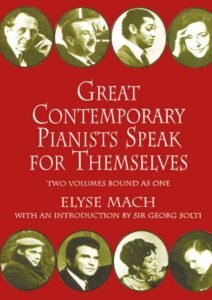
Biography: A Self-Forged Identity
- Birth & Heritage: Born Leon Dudley Sorabji on August 14, 1892, in Chingford, Essex, England. His father was a Parsi engineer from India (thus the Persian-derived name Sorabji), and his mother was English-Spanish. This mixed heritage profoundly shaped his sense of identity, though he felt alienated from both cultures.
- The Name: Around 1914, he legally changed his name to Kaikhosru Shapurji Sorabji. “Kaikhosru” and “Shapurji” were Persian names chosen for their resonance and connection to ancient Persian history and Zoroastrianism, reflecting his deliberate construction of a unique persona.
- Musical Formation: Largely self-taught. He received some piano lessons in his youth but had no formal composition training. His musical education came through voracious listening, score study (especially Bach, Liszt, Busoni, Debussy, Ravel, Scriabin, Szymanowski, Medtner), and wide reading in literature, philosophy, and the occult.
- Early Career & Criticism: Worked as a music critic (under the pseudonym “S. Godfrey”) for outlets like The New Age and The New English Weekly from the 1910s to the 1930s. His critiques were famously acerbic, insightful, and often scathing, particularly targeting English musical provincialism and composers he deemed mediocre (which was most of them).
- The Recluse: Deeply disillusioned by the musical establishment and critical reception to his early performances (which were rare and often controversial), Sorabji gradually withdrew from public musical life starting in the late 1930s. After his mother’s death in 1940, he retreated almost completely to his secluded home “The Eye” in Corfe Castle, Dorset, where he lived with his companion, Reginald Norman Best, until his death. He forbade performances of his music for decades.
- The Ban Lifted: In 1976, pressured by a growing underground interest spearheaded by pianists like Yonty Solomon and Alistair Hinton (who later became his literary executor), Sorabji reluctantly lifted the ban on performances, provided he approved the performer.
- Death: Sorabji died on October 15, 1988, in Winfrith Newburgh, Dorset, leaving behind a colossal legacy of unpublished manuscripts.
Works: Monuments of Sound

Sorabji’s output is vast and overwhelmingly dominated by solo piano music, though he also composed orchestral works, chamber music, organ symphonies, and songs. His works are renowned for their extreme length, density, and technical difficulty, pushing the boundaries of playability.
- Key Masterpieces:
- Opus Clavicembalisticum (1930): His most famous (or infamous) work. A colossal 4+ hour piano epic in 12 movements (including fugues, passacaglias, toccatas, cadenzas), often considered one of the most challenging solo piano works ever written. A summit of contrapuntal complexity and virtuosic display.
- Symphonic Variations for Piano (1935-37): Another monumental work, exploring vast variation forms over an extended duration.
- Sequentia Cyclica super “Dies iræ” ex Missa pro Defunctis (1948-49): A massive cycle of 27 variations on the “Dies Irae” chant, demonstrating his intricate contrapuntal and transformative skills.
- 100 Transcendental Studies (1940-44): True to their name, these studies explore extreme technical and expressive demands far beyond those of Liszt or Chopin.
- Symphonies for Solo Piano: Several exist, including his Symphony No. 2 (“Jāmī”), blending orchestral textures and scope onto the piano.
- Gulistān – Nocturne for Piano (1940): A prime example of his lush, perfumed, and incredibly intricate “Persian”-inspired style.
- Concerti: He wrote several for solo piano and orchestra (e.g., Concerto per suonare da me solo e senza orchestra, per divertirsi), which are symphonic in scale and require superhuman virtuosity.
- Symphonies for Organ: Vast, complex works exploring the sonic possibilities of the instrument.
Analysis of Style: A Universe of Complexity
Sorabji’s style is instantly recognizable yet difficult to categorize. It synthesizes diverse elements into a unique and overwhelming whole:
- Maximalism: This is the defining characteristic. Sorabji embraced extremes:
- Length: Works lasting several hours are common.
- Density: Highly polyphonic textures, often with multiple independent melodic lines woven together in complex counterpoint (influenced by Bach, Busoni).
- Virtuosity: Demands transcendental technique – cascades of notes, complex polyrhythms, wide leaps, immense power, and extreme delicacy. He wrote as if the pianist had four hands.
- Ornamentation: Baroque-like ornamentation (trills, mordents, turns, grace notes) is ubiquitous, often layered and integral to the texture, creating shimmering, kaleidoscopic surfaces (influenced by Scriabin, Szymanowski, Middle Eastern/Persian music).
- Dynamic Range: From barely audible whispers to thunderous, percussive climaxes.
- Harmony: A complex fusion:
- Rooted in late-Romantic chromaticism (Scriabin, Szymanowski, early Schoenberg).
- Freely employed dissonance, clusters, and intricate chord structures.
- Often retained a sense of tonal centers or polarity, even amidst dense chromaticism (unlike strict atonality).
- Incorporated modal inflections, sometimes evoking Persian or Spanish flavors.
- Rhythm: Highly complex and fluid:
- Frequent use of polyrhythms (multiple simultaneous rhythms), cross-rhythms, and nested tuplets (triplets within quintuplets, etc.).
- Tempo often fluctuates wildly, requiring immense control.
- A sense of improvisatory freedom within highly structured forms.
- Form: Often large-scale, complex, and idiosyncratic:
- Favored variations (passacaglias, chaconnes), fugues, toccatas, and intricate multi-movement structures (like the Opus Clavicembalisticum).
- Forms were often expansive and cumulative, building through layered repetition and intensification rather than traditional development.
- Architecture was paramount, even in the densest textures.
- Influences (Assimilated, Not Imitated):
- Ferruccio Busoni: The most profound influence. Busoni’s ideas of “Young Classicism,” the transcendental potential of the piano, the fusion of Bachian counterpoint with modern harmony, and the concept of “Junge Klassizität” resonated deeply. Sorabji dedicated his Opus Clavicembalisticum to Busoni’s memory.
- Franz Liszt: Virtuosity, thematic transformation, large-scale forms, and the symphonic poem concept translated to piano.
- J.S. Bach: Contrapuntal mastery, structural rigor, and the use of forms like fugue and passacaglia.
- Alexander Scriabin: Mysticism, harmonic language, dense textures, and ecstatic climaxes.
- Karol Szymanowski: Sensuous harmony, intricate ornamentation (especially in the “Persian” inspired works like Métopes and Masques), and voluptuous textures.
- Debussy & Ravel: Color, texture, exoticism, and pianistic refinement.
- Mediterranean & Persian Cultures: While not authentically recreating these styles, he evoked their essence through ornamentation, melodic turns, and titles (Gulistān, Jāmī), reflecting his fascination with his Persian heritage and the wider Orient.
- Aesthetic: Sorabji’s music aimed for:
- Transcendence: Pushing beyond perceived limits of instrument, performer, and listener.
- Luxuriance & Opulence: A rich, sensual, almost decadent sound world.
- Intellectual Rigor: Underlying the sensual surface was meticulous structural planning.
- Individualism: A complete rejection of prevailing trends (serialism, neoclassicism, minimalism) in favor of his own uncompromising vision.
Legacy: From Obscurity to Cult Status
Sorabji’s legacy is complex and evolving:
- Decades of Neglect: His self-imposed exile and performance ban meant his music was virtually unknown outside a tiny circle for nearly 40 years. Manuscripts were inaccessible, unplayable, and unpublished.
- The Pioneers (1970s-): The lifting of the ban sparked interest. Pianists like Yonty Solomon, Michael Habermann, Geoffrey Douglas Madge (who made the first complete recording of Opus Clavicembalisticum in 1977), and later Marc-André Hamelin, Jonathan Powell, Fredrik Ullén, and Ronald Stevenson began the monumental task of learning, performing, and recording his works. This required immense dedication and technical prowess.
- Publication & Scholarship: The Sorabji Archive, established by Alistair Hinton (Sorabji’s literary executor), has been crucial in cataloging, editing, and facilitating the publication of scores (primarily by Dover Publications and The Sorabji Music Archive). Scholarly work is gradually increasing.
- Recordings Renaissance: The CD era and digital distribution (YouTube, streaming) have been transformative. Dedicated labels (Altarus, BIS, Toccata Classics, Piano Classics) have released numerous recordings, making this once-inaccessible music available globally. Complete cycles of the 100 Studies and other major works are underway.
- The Cult & The Challenge: Sorabji remains a “composer’s composer” and a cult figure. His music is not mainstream concert fare due to its extreme demands and duration. However, it commands deep respect and fascination among pianists, composers, and listeners drawn to its unique sound world and uncompromising vision. He is seen as the ultimate iconoclast, forging a path utterly independent of 20th-century musical fashions.
- Influence: His direct influence on other composers is hard to pinpoint due to his obscurity, but he stands as a powerful symbol of uncompromising artistic integrity and the exploration of extreme complexity and virtuosity. Composers interested in maximalism, intricate counterpoint, or pushing pianistic limits inevitably encounter his shadow.
- Copyright Controversy: The complex copyright status of his works (involving the Sorabji Archive and publishers) has sometimes been a point of friction within the community of performers and scholars seeking access.
Sorabji: The Solitary Giant
Kaikhosru Shapurji Sorabji was a true original. He inhabited a musical universe entirely of his own making, synthesizing diverse influences into a style characterized by unparalleled complexity, sensuous opulence, and transcendental ambition. His deliberate withdrawal from the world ensured decades of obscurity, but the dedication of pioneering performers and the power of recording technology have brought his extraordinary soundscapes to light. While his music remains challenging and demanding, it offers unparalleled rewards: a journey into a world of labyrinthine beauty, overwhelming power, and intellectual fascination. Sorabji stands as a testament to the power of an utterly individual artistic vision, uncompromising in its scope and ambition, a solitary giant whose monumental creations continue to challenge and inspire. He redefined the possible for the piano and left a legacy that continues to unfold as more performers dare to scale his musical Himalayas.
“In the Hothouse” is one of Sorabji’s most evocative and frequently performed works, serving as a perfect entry point into his dense, sensuous sound world. Here’s a detailed look at this fascinating piece:
Context: Two Piano Pieces (1918)
- Composed: 1918 (early in Sorabji’s career, age 26).
- Publication: First published in 1920, making it one of the earliest Sorabji works available in print.
- The Pair: “In the Hothouse” is paired with “Toccata” – a contrasting, hyper-virtuosic, and structurally complex piece showing his Busoni/Liszt influences. “In the Hothouse” offers the sensual, atmospheric counterpoint.
- Significance: Represents Sorabji’s early mastery of texture, harmony, and evocative atmosphere. It predates his gargantuan works but already displays his unique voice.
“In the Hothouse”: A Sensory Immersion
- Title & Imagery: The title instantly conjures an environment: humid, lush, teeming with exotic, overripe plant life, heavy perfumes, and stifling, enclosed heat. Sorabji translates this sensory overload into sound.
- Form & Structure: Relatively free and rhapsodic. It unfolds as a continuous, organic stream of consciousness rather than adhering to strict classical forms. Think of it as an elaborate, decadent arabesque.
- Style & Character:
- Extreme Sensuality: This is the defining feature. The music drips with lush, complex harmonies and suffocatingly rich textures.
- Harmony: Deeply chromatic, rooted in late Scriabin and early Szymanowski. Expect dense, constantly shifting chords: augmented harmonies, whole-tone inflections, unresolved dissonances creating tension, and sudden moments of surprising consonance like shafts of light piercing foliage. It avoids traditional tonality but gravitates around implied centers.
- Texture: Thick, layered, and constantly in motion. Tremolos, trills, rapid filigree (ornamental passages), and cascading arpeggios create a shimmering, humid haze. Melodies are often embedded within this dense undergrowth rather than standing clearly apart. The writing often requires the pianist to sustain multiple layers simultaneously.
- Rhythm: Fluid and flexible, often obscured by the sheer density of notes and ornamentation. Rubato (expressive tempo fluctuations) is essential. While less overtly complex polyrhythmically than his later works, the rhythmic flow feels organic and improvisatory.
- Dynamics & Articulation: Wide dynamic range, often shifting suddenly between extremes (e.g., thunderous climaxes collapsing into fragile whispers). Articulation varies from sharp staccatos to legatissimo passages that blur together. Pedaling is crucial for sustaining the harmonic haze and creating resonance.
- Ornamentation: Quintessential early Sorabji. Trills, mordents, turns, and grace notes are not mere decoration; they are the texture, creating constant flickering movement and contributing to the claustrophobic, teeming atmosphere. This foreshadows the intricate ornamentation dominating his mature style.
- Emotional Landscape: Evokes opulence, decadence, languor, mystery, stifling heat, hidden dangers, and overwhelming sensory stimulation. There’s a sense of beauty bordering on the grotesque due to its sheer intensity.
Influences Audible in “In the Hothouse”
- Scriabin (Primary): The harmonic language (mystic chords, unresolved dissonance, ecstatic climaxes), the sensual atmosphere, and the use of trills/tremolos are deeply indebted to Scriabin’s late sonatas and poems (e.g., Vers la flamme). Sorabji pushes Scriabin’s decadence further.
- Szymanowski: The opulent textures, perfumed harmonies, and “orientalist” exoticism (though abstracted here) strongly recall Szymanowski’s “Métopes” or “Masques,” which Sorabji admired deeply.
- Debussy: The focus on atmosphere, texture, and harmonic color (whole-tone scales, parallel chords) shows Debussy’s influence, though rendered with far greater density and intensity.
- Ravel: The virtuosic filigree and lush harmonies (think “Gaspard de la Nuit,” especially “Ondine” or “Le gibet”) are a touchstone, again amplified.
- Liszt: The rhapsodic freedom and dramatic gestures hint at Liszt, though filtered through a post-Scriabinesque lens.
Performance Challenges
- Texture & Balance: Maintaining clarity amidst the dense, rapidly shifting textures is paramount. The pianist must carefully voice chords and layers to prevent muddiness while sustaining the essential harmonic haze.
- Ornamentation as Texture: Executing the constant ornamentation smoothly and evenly, integrating it into the melodic and harmonic flow rather than treating it as mere decoration.
- Dynamic Control: Navigating the extreme dynamic contrasts and sudden shifts without sounding jarring. Creating a true pianissimo shimmer within complexity is incredibly difficult.
- Rubato & Phrasing: Applying expressive tempo fluctuations naturally while maintaining the overall structural coherence and forward momentum of the rhapsodic form.
- Pedaling: Using the pedal to create resonance and blend without causing harmonic blurring or loss of rhythmic definition. Requires exceptional sensitivity.
- Stamina & Focus: While shorter than his later works (typically 12-15 minutes), the piece demands intense concentration and physical control to sustain the atmosphere and navigate the technical intricacies.
Legacy & Significance of “In the Hothouse”
- Accessibility: It remains one of Sorabji’s most “accessible” works due to its evocative title, relatively shorter duration, and concentrated expression. It’s a frequent choice for pianists introducing audiences to Sorabji.
- Blueprint: It serves as a crucial blueprint for Sorabji’s mature style, showcasing his core preoccupations: sensuality, harmonic density, intricate ornamentation as texture, and atmospheric evocation, all present in embryonic form.
- Performance History: Despite Sorabji’s later ban, “In the Hothouse” (along with the Toccata) was one of the few pieces occasionally performed during his lifetime (e.g., by Sorabji himself and pianist Reginald Paul) and became a key work for the pioneering generation post-1976 (Yonty Solomon, Michael Habermann, Marc-André Hamelin, Jonathan Powell, Fredrik Ullén).
- Gateway Piece: It functions as a vital “gateway drug” into Sorabji’s world. Its success in conveying its intense atmosphere often encourages listeners to explore his more monumental, complex works.
- Standalone Masterpiece: Regardless of its role as an introduction, it stands as a perfectly formed and powerful piece of early modernist piano writing, a miniature tone poem of extraordinary evocative power.
“In the Hothouse” is a sun-drenched, overripe, and intoxicating immersion into Sorabji’s unique aesthetic. It captures the essence of his sensual maximalism in a concentrated dose, showcasing his debt to Scriabin and Szymanowski while asserting his own distinct voice. Its evocative power, technical brilliance, and relative brevity ensure its enduring place as one of his most beloved and frequently performed works, offering a compelling glimpse into the hothouse of Sorabji’s extraordinary musical imagination.
| Artist or Composer / Score name | Cover | List of Contents |
|---|---|---|
| Jethro Tull Aqualung (Essay Book) by Allan Moore |
 |
|
| Jethro Tull Flute Solos as performded by Ian Anderson Transcribed by Jeff Rona |
 |
Jethro Tull Flute Solos as performded by Ian Anderson Transcribed by Jeff Rona |
| Jethro Tull Guitar Anthology |
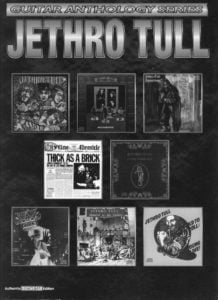 |
Jethro Tull Guitar Anthology |
| Jethro Tull Rock Score |
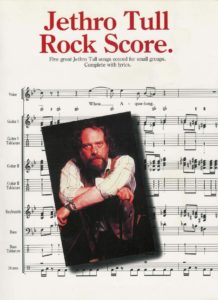 |
|
| Jethro Tull The Best Of Jethro Tull (Piano, guitar & vocal) |
 |
Jethro Tull The Best Of Jethro Tull (Piano, Guitar & Vocal) |
| Jethro Tull Very Best Of Piano Vocal Guitar |
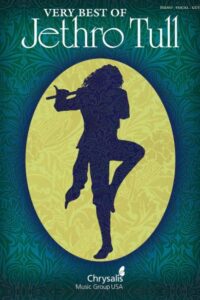 |
Jethro Tull Very Best Of Piano Vocal Guitar |
| Jewel – Foolish Games | ||
| Jewel – Hands | ||
| Jewel – How Do I Live | ||
| Jewish Fake Book, The |
 |
Jewish Fake Book, The |
| Jiggs Whigham Jazz Solos |
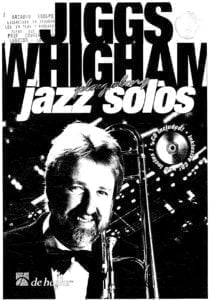 |
|
| Jim Brickman – All I Ever Wanted | Jim-Brickman-All-I-ever-Wanted 1st page | |
| Jim Brickman – Angel Eyes | Jim-Brickman-Angel-Eyes 1st page | |
| Jim Brickman – Destiny |
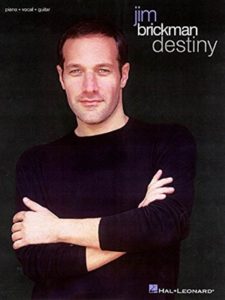 |
Jim Brickman Destiny |
| Jim Brickman – Love Songs & Lullabies (Songbook) |
 |
Jim Brickman – Love Songs & Lullabies (Songbook) contents  |
| Jim Brickman – My Romance Piano Vocal Guitar Songbook, An Evening With Jim Brickman |
 |
Jim Brickman – My Romance Piano Vocal Guitar Songbook, An Evening With Jim Brickman |
| Jim Brickman – Nothing Left To Say | JIM BRICKMAN – Nothing left to say | |
| Jim Brickman – The Collection – Words & Music |
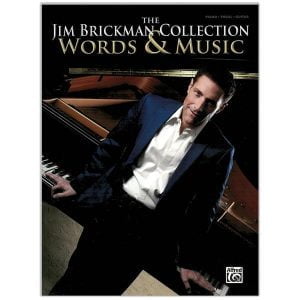 |
Jim Brickman – Collection |
| Jim Brickman – The Disney Songbook |
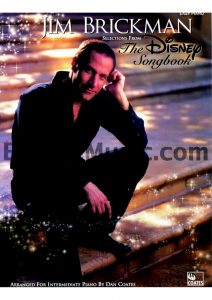 |
Jim Brickman -Disney songbook — Jim Brickman – The Disney Songbook contents |
| Jim Brickman – Valentine | ||
| Jim Brickman By Heart |
 |
Jim Brickman By Heart |
| Jim Brickman Christmas Themes |
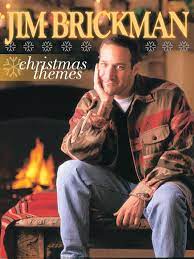 |
Jim Brickman Christmas Themes |
| Jim Brickman Circles |
 |
|
| Jim Brickman Escape Songbook Piano Vocal Guitar |
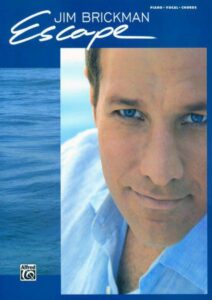 |
Jim Brickman Escape Songbook Piano Vocal Guitar |
| Jim Brickman Greatest Hits |
 |
Jim Brickman Greatest Hits songbook contents |
| Jim Brickman Old Times |
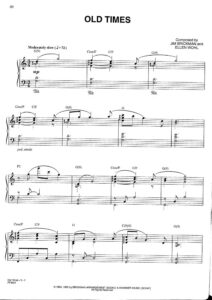 |
|
| Jim Brickman One And Only |
 |
|
| Jim Brickman Piano Anthology |
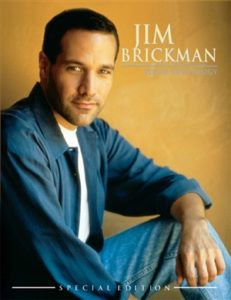 |
Jim Brickman Piano Anthology |
| Jim Brickman Picture This Piano solo collection |
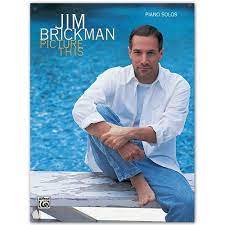 |
Jim Brickman Picture This Piano solo collection |
| Jim Brickman The Gift Piano Solos |
 |
Jim Brickman The Gift Piano Solos sheet music contents |
| Jim Brickman The Promise | Jim Brickman The Promise | |
| Jim Brickman Winter Peace | Jim Brickman-Winter Peace | |
| Jim Croce The Very Best of – Guitar Recorded Versions Tablature |
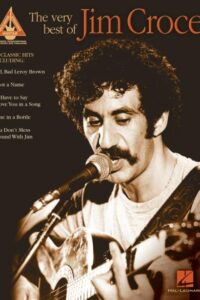 |
Jim Croce The Very Best of – Guitar Recorded Versions Tablature |
| Jim Ferguson All Blues Comping Styles,chords & Grooves For Jazz Guitar (Book +audio Mp3 with Tablature) |
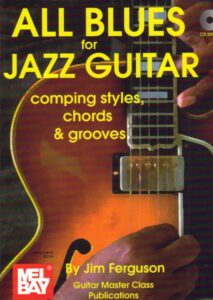 |
All Blues For Jazz Guitar Comping Styles Chords And Grooves by Jim Ferguson Guitar Tablature |
| Jim Hall – Solo on I Hear A Rhapsody from Undercurrent with Bill Evans |
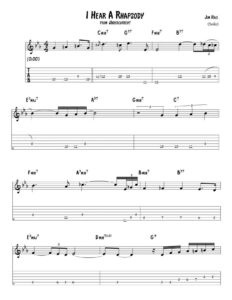 |
|
| Jim Hall – Solo on My Funny Valentine from Undercurrent with Bill Evans |
 |
|
| Jim Hall – Stella by starlight transcription | Jim Hall – Stella by starlight transcription | |
| Jim Hall Exploring Jazz Guitar |
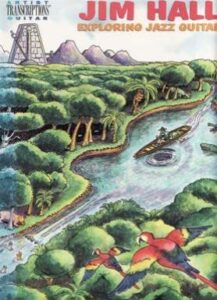 |
Jim Hall Exploring Jazz Guitar |
| Jim Hall Guitar Signature Licks By Adam Perlmutter |
 |
Jim Hall Signature Licks By Adam Perlmutter |
| Jim Hall Music – Principles of Guitar Improvisation Jazz Guitar Master Class |
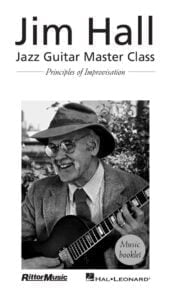 |
Jim Hall Music – Principles of Guitar Improvisation Jazz Guitar Master Class contents —- Jim hall |
| Jim Hall The Best – of Guitar Recorded Versions Tablature |
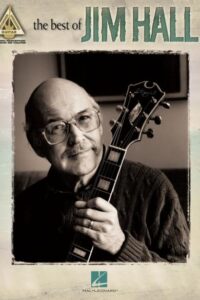 |
Jim Hall The Best – of Guitar Recorded Versions Tablature |
| Jim Mc Neely – Piano Comping Workbook Text: English / français / deutsch |
 |
Jim Mc Neely – Piano Comping Workbook |
| Jim Morrison The Lizard King The Essential Jim Morrison (Book Biography) |
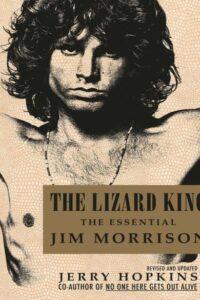 |
|
| Jim Snidero – Easy Jazz Conception Trumpet |
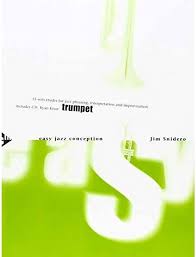 |
Jim Snidero – Easy Jazz Conception Trumpet |
| Jim Snidero Trombone Easy Jazz Conception |
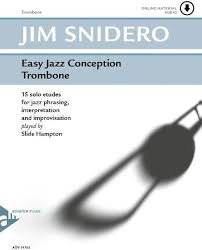 |
|
| Jim Steinman Collection Greatest Hits |
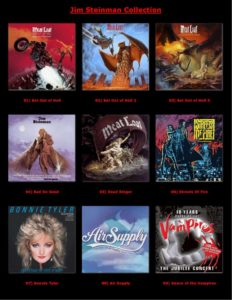 |
|
| Jimi Hendrix Axis Bold As Love (Guitar Book with Tablature) |
 |
Jimi Hendrix Axis Bold As Love (Guitar Book) |
| Jimi Hendrix Note For Note (guitar with Tablature) |
 |
Jimi Hendrix Note For Note Guitar songbook |
| Jimi Hendrix The Jimmi Hendrix Experience Electric Ladyland (Guitar with Tablature) |
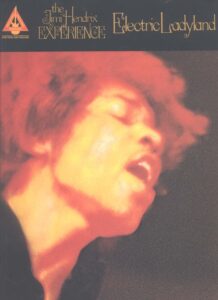 |
Jimi Hendrix The Jimmi Hendrix Experience Electric Ladyland guitar |
| Jimi Hendrix – Live At Woodstock (guitar sheet music Book with Tablature) |
 |
Jimi Hendrix Live At Woodstock (guitar sheet music Book) |
| Jimi Hendrix – All Along The Watchtower (audio Mp3 Tabs And Backing Track) Guitar Techniques with Tablature |
 |
|
| Jimi Hendrix – Are You Experienced Guitar TAB Songbook |
 |
Jimi Hendrix – Are You Experienced Guitar Songbook |
| Jimi Hendrix – Blues Songbook Guitar Tab Tablature Complete Transcriptions of recorded versions |
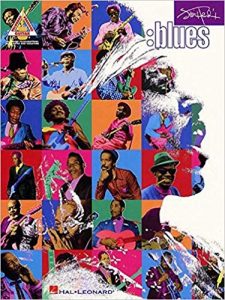 |
Jimi Hendrix Songbook |
| Jimi Hendrix – Experience Hendrix (Songbook) Piano Vocal Guitar |
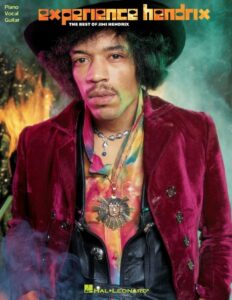 |
Jimi Hendrix – Experience Hendrix (Songbook) Piano Vocal Guitar |
| Jimi Hendrix – Guitar Signature Licks Vol. 2 (Chad Johnson) with Tablature |
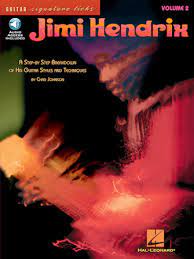 |
Jimi Hendrix – Guitar Signature Licks Vol. 2 (Chad Johnson) |
| Jimi Hendrix Band Of Gypsys Guitar Songbook with Tablature |
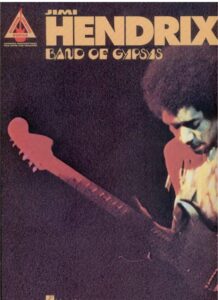 |
Jimi Hendrix Band Of Gypsys Guitar Songbook with Tablature — Jimi Hendrix Band Of Gypsys Guitar Songbook |
| Jimi Hendrix First Rays Of The New Rising Sun Guitar TABs |
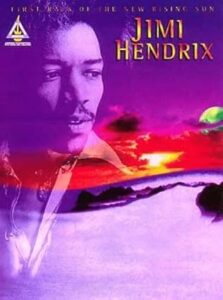 |
Jimi Hendrix First Rays Of The New Rising Sun Guitar TABs contents |
| Jimi Hendrix Jazz Play Along Vol. 80 – Jimi Hendrix with MP3 audio tracks 10 Classic Tunes (Guitar) |
 |
Jimi Hendrix 10 Classic Tunes Jazz Play Along Vol. 80 Guitar |
| Jimi Hendrix Omnibook For C Instruments Transcribed from his recorded solos (TAB) |
 |
Jimi Hendrix Omnibook For C Instruments |
| Jimi Hendrix Star Licks (with MP3 audio tracks play along) |
 |
|
| Jimi Hendrix Style Guitar Songbook – Guitar Signature Licks with Tablature |
 |
Jimi Hendrix Style Guitar Songbook |
| Jimi Hendrix The Illustrated Story (Gaar, Gillian) Book |
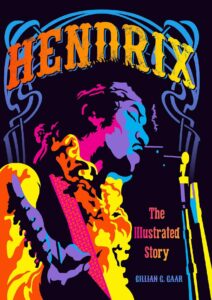 |
|
| Jimi Hendrix Woodstock Recorded Versions with Tablature |
 |
Jimi Hendrix Woodstock Recorded Versions with Tablature |
| Jimi Hendrix, In Deep with – A Complete Exploration of His Innovative Guitar Style (Andy Aldedort) Guitar TABs |
 |
Jimi Hendrix, In Deep with – A Complete Exploration of His Innovative Guitar Style (Andy Aldedort) Guitar TABs |
| Jimmie Davis And Charles Mitchell You Are My Sunshine Piano Vocal Guitar |
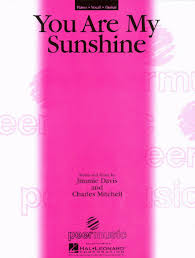 |
|
| Jimmy Dorsey Sax Atlo Method – Método de saxofón (text in Spanish and Portugese) |
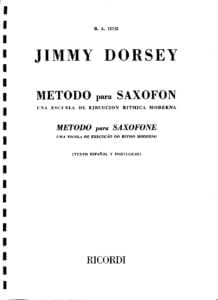 |
|
| Jimmy Giuffre Sketch-Orks |
 |
Jimmy Giuffre Sketch-Orks |
| Jimmy McHugh – Songbook | Jimmy McHugh – Songbook | |
| Jimmy Page Guitar Book Super Rock Guitarist with Tablature |
 |
Jimmy Page Guitar Book Super Rock Guitarist |
| Jimmy Raney Anthropology (Jimmy Raney Solo) |
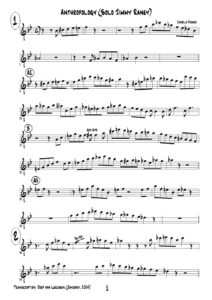 |
|
| Jimmy Raney Pennies From Heaven |
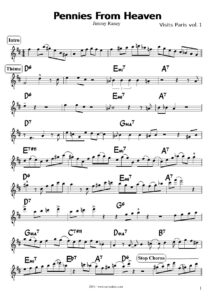 |
|
| Jimmy Raney The Song Is You Ab (Jimmy Raney Solo) Birdand Sessions 1952 |
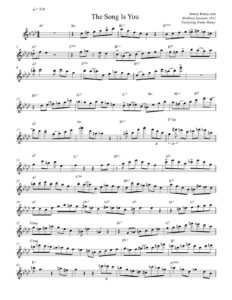 |
|
| Jimmy Smith Sounds Of Jimmy at the Organ Vol. 1 |
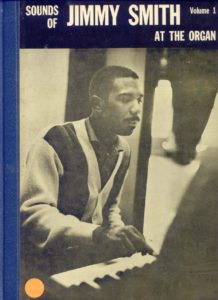 |
|
| Jimmy Smith Sounds Of Jimmy at the Organ Vol. 2 |
 |
|
| Jimmy Van Heusen But Beautiful (Jazz Standard) |
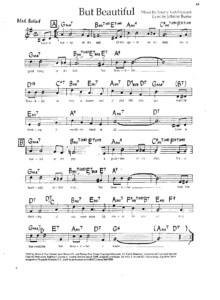 |
|
| Jimmy Van Heusen But Beautiful Jazz Standard Piano Solo Arr Musescore File.mscz | ||
| Jimmy Van Heusen But Beautiful Jazz Standard Piano Solo Arr sheet music |
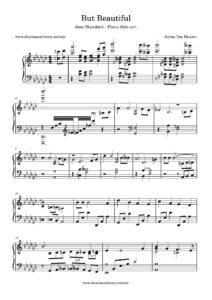 |
|
| Jimmy Yancey 5 Famous Boogie & Blues solos |
 |
|
| Jingle Bells | ||
| Jingle Bells – Guitar TABlature |
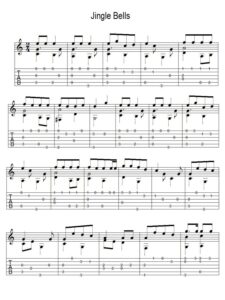 |
|
| Joan Baez Songbook (arrangements by Elie Siegmeister) |
 |
Joan Baez Songbook |
| Joan Manuel Serrat Antología |
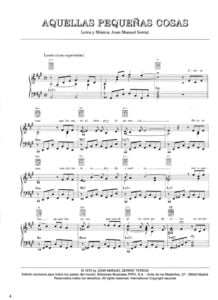 |
Serrat, Joan Manuel – Partituras Antologia |
| Joan Osborne – One Of Us | ||
| Joao Bosco 1 Guitar Songbook by Almir Chediak |
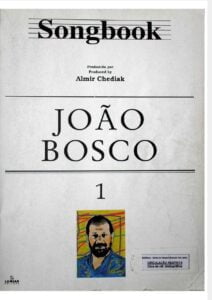 |
Joao Bosco 2 Guitar Songbook by Almir Chediak.pdf |
| Joao Bosco 2 Guitar Songbook by Almir Chediak |
 |
Joao Bosco 2 Guitar Songbook by Almir Chediak.pdf |
| Joao Bosco 3 Guitar Songbook |
 |
Joao Bosco 3 Guitar Songbook |
| Joao Gilberto Songbook Guitar Chords And Tabs By Julien Levêque |
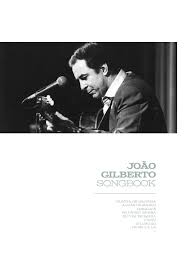 |
Joao Gilberto Songbook Guitar Chords And Tabs By Julien Levêque |
| Joao Gilberto Songbook Vol. 1 (Guitar) |
 |
Joao Gilberto Songbook Vol. 1 (Guitar) |
| Joao Nogueira Sambabook Transcriptions for Guitar |
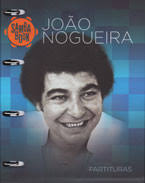 |
Joao Nogueira Sambabook Transcriptions for Guitar |
| Joaquim Antonio da Silva Flor Amorosa Guitar TABs Tablature | Joaquim Antonio da Silva Flor Amorosa Guitar TABs Tablature 1st page | |
| Joaquim Antonio da Silva O Pato Guitar TABs Tablature | Joaquim Antonio da Silva O Pato Guitar TABs 1st page | |
| Joaquin Rodrigo Elogio De La Guitarra (Arr. By Angelo Gilardino) |
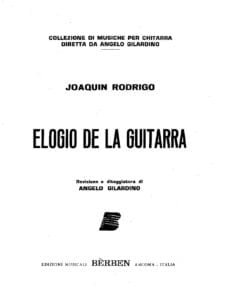 |
|
| Jobim – O Grande Amor (guitar chords).mscz | ||
| Jobim – One Note Samba (guitar chords and TABS) |
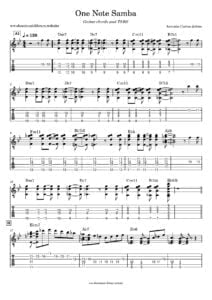 |
|
| Jobim – One Note Samba (Guitar Tabs Sheet Music) (Musescore File).mscz | ||
| Jobim How Insensitive (Musescore File).mscz | ||
| Joc de jocs – Jocs i cançons tradicionals catalanes amb partitures i lletres |
 |
|
| Jocelyn Pook How Sweet The Moonlight Countertenor Soprano Keyboards |
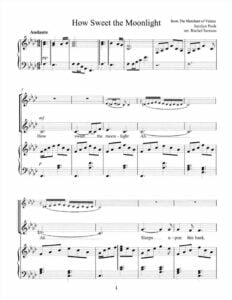 |
|
| Jody Fisher The Art of Solo Guitar Book 1 with audio MP3 tracks to play along |
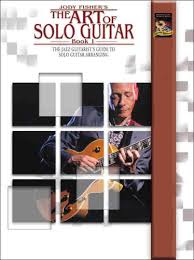 |
|
| Jody Fisher The Art of Solo Guitar Book 2 with audio MP3 tracks to play along |
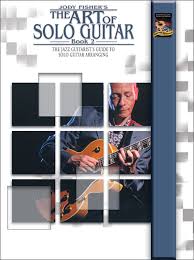 |
|
| Jody Fisher Guitar Chord and Scale Finder A handbook for the improvising guitarist |
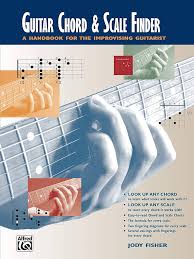 |
|
| Jody Fisher The Total Jazz Guitarist A fun and comprehensive overview of jazz guitar playing |
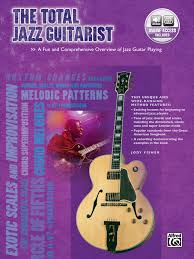 |
|
| Joe Bonamassa – Blues Deluxe (Guitar Tab Sheet Music) |
 |
|
| Joe Bonamassa Collection (sheet music and TAB) |
 |
Joe Bonamassa Collection (sheet music and TAB) |
| Joe Bonamassa Driving Towards The Daylight Guitar Vocal |
 |
Joe Bonamassa Driving Towards The Daylight Guitar Vocal |
| Joe Bonamassa Intro Guitar Licks (Musescore File).mscz | ||
| Joe Bonamassa licks | Joe Bonamassa licks | |
| Joe Bonamassa Redemption Guitar TAB |
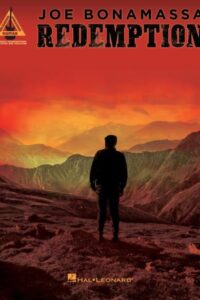 |
Joe Bonamassa Redemption Guitar TAB |
| Joe Bonamassa Royal Tea Guitar TABs |
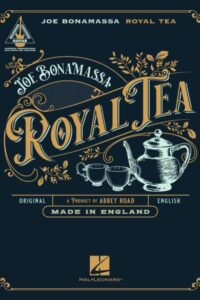 |
Joe Bonamassa Royal Tea Guitar TABs |
| Joe Cocker – Unchain My Heart (Piano vocal) |
 |
|
| Joe Cocker – You Are So Beautiful | ||
| Joe Cocker – You Can Leave Your Hat On | ||
| Joe Cocker Best Of Joe Cocker Piano Vocal Guitar |
 |
Joe Cocker Best Of Joe Cocker Piano Vocal Guitar |
| Joe Cocker Pardon Me Sir Songbook Piano Vocal Chords |
 |
Joe Cocker Pardon Me Sir Songbook |
| Joe Cocker The Best Of Songbook |
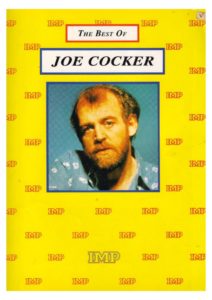 |
Joe Cocker The Best Of Songbook |
| Joe Cocker You Are so Beautiful Billy Preston and Bruce Fisher Piano Vocal Guitar chords |
 |
|
| Joe Dassin – A Toi | ||
| Joe Diorio Intervallic Designs for Jazz Guitar Ultramodern Sounds for Improvising |
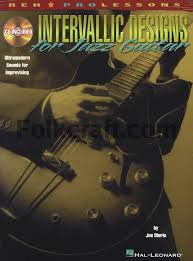 |
|
| Joe Diorio John Coltrane Giant Steps (Guitar) With Tablature |
 |
|
| Joe Elliott Introduction To Jazz Guitar Soloing A Comprehensive Improvisation Method |
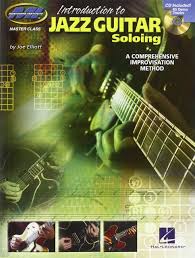 |
|
| Joe Henderson Jazz Solos |
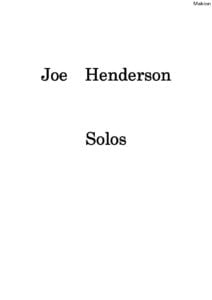 |
Joe Henderson Jazz Solos |
| Joe Hiaishi – Howl’s Moving Castle – Promise Of The World (Ending Theme) Piano Solo (Musescore File).mscz | ||
| Joe Hisaishi A Town With An Ocean View | Joe Hisaishi A Town With An Ocean View | |
| Joe Hisaishi Encore (Piano Solo Sheet Music) Complete |
 |
Joe Hisaishi Encore (Piano Solo Sheet Music) Complete |
| Joe Hisaishi Hana Bi (Piano Solo Sheet Music) | Joe Hisaishi Hana Bi (Piano Solo Sheet Music) | |
| Joe Hisaishi Nostalgia (Piano Solo Sheet Music) | Joe Hisaishi Nostalgia (Piano Solo Sheet Music) | |
| Joe Hisaishi Richly Arranged Piano Solo |
 |
Joe Hisaishi Richly arranged Piano Solo contents Joe Hisaishi Richly arranged Piano Solo |
| Joe Hisaishi Sbornik Not |
 |
|
| Joe Hisaishi Silencio De Parc Güell From Encore (Piano Solo Sheet Music) | Joe Hisaishi Silencio De Parc Güell From Encore (Piano Solo Sheet Music) | |
| Joe Hisaishi – Howl’s Moving Castle Guitar Tab Sheet Music |
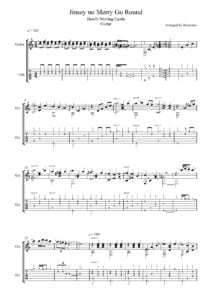 |
|
| Joe Hisaishi – Howl’s Moving Castle Main Theme Piano 4 Hands |
 |
|
| Joe Hisaishi – Howl’s Moving Castle Theme Full Score piano arr. |
 |
|
| Joe Hisaishi – Totoro theme piano solo sheet music |
 |
|
| Joe Hisaishi Howl’s Moving Castle Piano solo arr. |
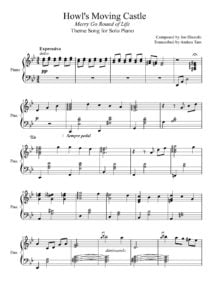 |
|
| Joe Hisaishi – A Town With An Ocean View |
 |
|
| Joe Hisaishi – Adoria No Umi He (From Porco Rosso) Guitar Arr. With Tablature |
 |
|
| Joe Hisaishi – Always with me | Joe Hisashi-Always with me_compressed | |
| Joe Hisaishi – Always With Me (Reprise) from Spirited Away Easy Piano version |
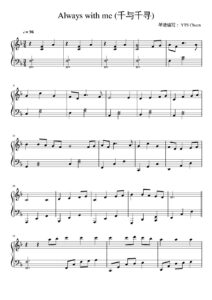 |
|
| Joe Hisaishi – Always With Me (Reprise) from Spirited Away Easy Piano version.mscz | ||
| Joe Hisaishi – Ano Natsu He (One Summer Day From Spirited Away) Guitar Arr. With Tabs |
 |
|
| Joe Hisaishi – Ashtaka to San from the film Princess Mononoke (Guitar arr. with TABs) |
 |
|
| Joe Hisaishi – Gogatsu no Mura (Village in May) from My Neighbor Totoro Guitar TABs |
 |
|
| Joe Hisaishi – Going Out from Kikujiro | Joe Hisaishi – Going Out from Kikujiro | |
| Joe Hisaishi – Howl’s Moving Castle – Promise of the World (Piano Solo arr.) | Joe Hisaishi – Howl’s Moving Castle – Promise of the World (Piano Solo arr.) | |
| Joe Hisaishi – In Loving Memory Of Allie from Ni No Kuni |
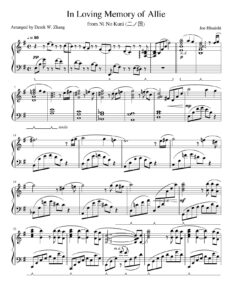 |
|
| Joe Hisaishi – Innocent from Castle in the Sky Laputa Guitar Arr. With Tabs |
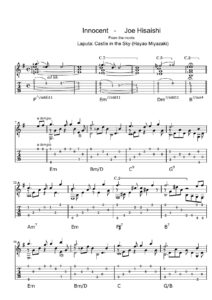 |
|
| Joe Hisaishi – Jinsei no Merry go round (from Howl’s moving castle – Guitar Tablature arr. |
 |
|
| Joe Hisaishi – Merry Go Round Of Life Small Ensemble |
 |
|
| Joe Hisaishi – Nostalgia (Musescore File).mscz | ||
| Joe Hisaishi – One Summer’s day (The name of life) いのちの名前 (inochi no namae) from Spirited Away |
 |
